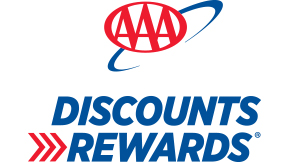When is Medicare primary?
When is Medicare primary?

For the most part, when you have more than one form of coverage, Medicare is primary. Some examples include having group coverage through a smaller employer, COBRA, being on inactive duty with TRICARE, or Medicaid.
Usually, secondary insurance will only pay if the primary insurance paid its portion first. Still have questions? Our AAA Licensed Insurance Agents can help you decide what's best in your individual situation.
Here are the situations where Medicare will be your primary form of coverage:
- When you have group coverage through a small employer.
- COBRA — There are scenarios when you'll have Medicare & COBRA at the same time. The majority of the time, Medicare will be primary, and COBRA will be secondary. The exception to this is if your group coverage had special rules that determined who the primary payer is.
It's not common for COBRA to be the better option for an individual who's eligible for Medicare. This is because COBRA costs more money than Medicare. Once you enroll in Medicare, you can drop your COBRA coverage.
Another key fact to know is that COBRA is not considered creditable coverage. If you're eligible for Medicare and do not enroll, you'll incur late enrollment penalties since COBRA is not considered as good as Medicare. You'll need to enroll in Medicare within the first eight months you have COBRA even if your COBRA coverage is active longer than eight months.
- Retiree Coverage — When your group employer insurance continues to provide your health insurance after you retiree, this is called retiree coverage. In this scenario, Medicare is primary and your retiree coverage is secondary. Often retiree coverage will include prescription drug coverage. If this is the case for you, you probably won't need to enroll in a Part D prescription drug plan, as long as you have creditable coverage.
- TRICARE for Life — When military retirees and their spouses are eligible for Medicare, they become eligible for TRICARE for Life (TFL). For any care you receive at a non-military facility, Medicare will pay first, so you need to enroll in Part A and Part B when you become eligible.
TFL includes creditable coverage for prescription drugs, so you don't need to enroll in Part D. Some TFL beneficiaries choose to enroll in a Medicare Advantage plan due to the extra benefits they may offer, including dental, hearing, and vision benefits. In addition, TFL will help cover some of the out-of-pocket costs that come with Medicare Advantage plans.
- Medicaid — Medicaid is a state-run federal assistance program created to assist those who are considered low income. When you become eligible for Medicare and are also eligible for Medicaid, you're considered dual-eligible. When you're dual eligible for both Medicare and Medicaid, Medicare is your primary payer. Medicaid will not pay until Medicare has paid first.
If you need assistance covering the costs of Part B and Part D and are dual-eligible, you could qualify for a Medicare Savings Program to assist you with these costs. Always make sure your provider accepts both Medicare and Medicaid before seeking care.
Looking for Medicare guidance? AAA Licensed Insurance Agents are experts at helping you get the best coverage.












